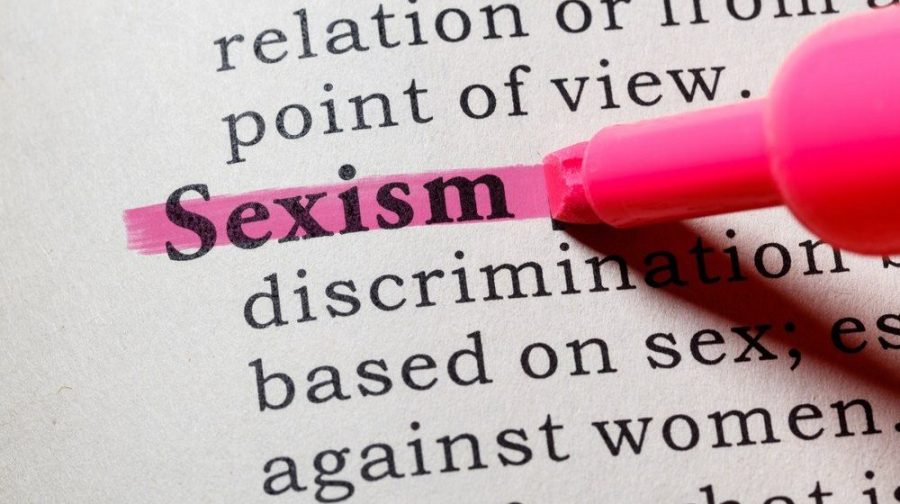Sexism and It’s Impact on Mental Health
September 29, 2019
In today’s time, it’s not shocking when a woman says they have experienced sexism. What is shocking is the fact that those brutal interactions have caused women to develop some sort of mental illness. According to Bustle, women who have experienced sexism are more prone to clinical depression, exhaustion, and other mental health problems. Statistically, it makes them 3 times more likely to develop mental illness. Women report their interactions with sexism every day, but sadly they aren’t a priority for others and end up getting ignored so they tend to keep it to themselves.
A new survey explains that ¾ of women say they have experienced sexism in their workplace. The same survey explains that only ½ of men experience sexism while at work. The reason behind this is in today’s society is making most young women feel disempowered. They feel silenced and feel as they can’t speak up for themselves. These small things can bring women’s self-esteem down and mess with their lives. To this day, we can see how women’s wages aren’t as high as men, the thought of not having the same amount of value can bring obstacles in a young woman’s life. They will most likely start thinking less of themselves.
To add on, according to Bustle, women are also more likely to experience poverty due to work-related issues. Women are at risk of needing more help financially and mentally due to sexism. These problems of just getting bigger and bigger every day without any awareness. We see the news every day, that new laws and obstacles have entered the world on behalf of a woman’s decisions about their bodies. Currently, it’s mostly men having the say but without a woman’s perspective, it can cause major issues mentally and physically to women of all ages.
Besides creating new mental health issues, sexism can also make matters worse. A new statistic from medicinent.com shows that 20% of adolescents are affected by depression by the time they become adults. Sexism is making teens dangerously close to other mental health issues that will take a long time to recover from.
The setting sexism takes place in can also make a big impact on their mental health. For example, a study from medical express shows 77% of sexism occurs in the streets, 39.9% in public transportation, 38.9% in a train, 12% at work or school, and 10.5% at home. The occurrences at home might have a bigger impact on women’s view of life since it means it’s more often with people they most likely live with. The interactions in public might make them feel unsafe to be walking around and bring their whole mood down. If this happens daily, their mood will automatically drop down and sooner or later, develop depression.
Sexism gets worse every day we don’t do anything about it. Women are suffering for reasons that can be prevented and that are truly unnecessary. Currently, the rate of depression is increasing while we should be trying to lower the numbers. Sexism is only contributing to these cases. The world should be more aware and informed about sexism isn’t just comments and words but can put a life in danger.










































































































































